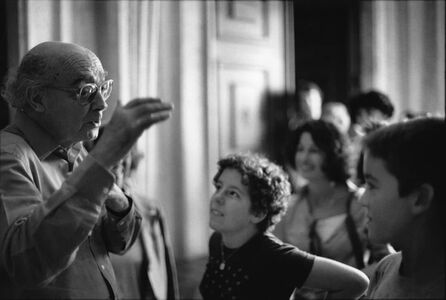José de Sousa Saramago, (16 November 1922 – 18 June 2010), was a Portuguese writer and recipient of the 1998 Nobel Prize in Literature for his "parables sustained by imagination, compassion and irony which enables us to apprehend an illusory reality." His works, some of which can be seen as allegories, commonly present subversive perspectives on historic events, emphasizing the poetic human factor.
~
Sometime in the early 1950s, when José Saramago was 31, he attempted to write a novel. Till then he had been a car mechanic, a government employee, a translator, a journalist in a dissatisfied manner. He sent his manuscript to a publisher and never heard from them. Eventually, he found his calling and published several novels. All of them in his sixties, achieved acclaim including a Nobel prize.
36 years after he sent the manuscript and after the publication of some of his major work, he hears from the publisher. He was at home, shaving. They apologized and asked him if they could publish the work. He wiped his face with a towel, splashed cold water and went to the office of the publisher, took back the manuscript and locked it up at home. Humiliated, he gave strict instructions, to never publish it in his lifetime. His wife and translator Pilar Del Rio sent it to a publisher, after his death, for she wanted the readers to know the writings of Saramago in his earliest days.
That little story forms an interesting background to what in turn is an engrossing, sensitive, and even commonplace, that shines with a great understanding of life and human nature. The Skylight, is a story of an apartment building in Lisbon which houses six families.
A kindly cobbler and his wife, who takes in a new tenant Abel, a commitment-phobic young man, perhaps the authors alter ego. A brute and his diabetic wife, who mourns their only child's death, a middle-aged couple with their teen daughter, two sisters with their mother and aunt, a salesman with his disinterested Spanish wife who feels hemmed in a foreign country and finally a mistress, her paramour, and her mother complete the characters. They are all thrown together in one place. There is kindness and a philosophical sense of acceptance, there is ambition, there is mean mindedness in plenty, there is thrift, there is blackmail, even marital rape. But none of this, appears overdone.
People get into situations, some are resolved, some unresolved but the individuals keep their dignity and move ahead. Because the premise is one, the reader is taken from one apartment into the next examining situations one after the other, the characters peculiar problems and how they go about dealing in a normal, everyday way and the courage with which they face issues which threaten to overwhelm them. How they retain or realign their priorities, freedom, love, respect, financial insecurity, harmony, makes for introspective reading.
This in essence is José Saramago, which manifests many folds in his later writings.

